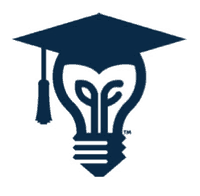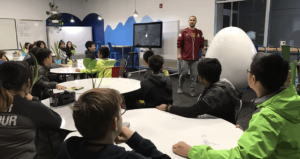Innovation In the Face of Dated Modalities

By Shawn Volk, Lead Teacher at Little Chute Career Pathways Academy
The charter school movement that began 20 years ago in Minnesota has provided an unprecedented opportunity for educators to implement innovative change. This kind of change invokes a variety of emotions. These feelings run the gamut from the exhilaration that accompanies the implementation of new and exciting ideas, to the near hopelessness that comes with realization that the inertia of the current system is constantly pushing you back into the box that you are desperately trying to escape. The 2011/12 school year was the first year of existence for Little Chute Career Pathways Academy, and it was certainly a learning experience for everyone involved, including students, parents, and Academy staff.
One of the main obstacles that we realized early on that we needed to overcome was the manner in which we reported our grades. Parents expected grades at regular, four quarter intervals as they had been accustomed to in the past. The State of Wisconsin expected grades and credits reported in such a way as to conform to the Coursework Completion System (CWCS). Our students expected grades to be reported according to the customs that had been established through years of “perfection” in the traditional Carnegie unit system.
When we decided to pursue a charter school in the Little Chute School District, we were firmly committed to being innovative in our approach to education. Until we began the actual process of implementation, we really could not grasp the extent to which traditional approaches to education would hold us back. As a school, our goal was to provide our students with a wide variety of curricular opportunities, from traditional classes to online learning, from blended courses to project based opportunities.
The system that we are trying to implement at LCCPA does not fit nicely into the paradigms held by our students, their parents, or the State of Wisconsin. Like many charter schools, our students take their math classes using the online learning environment ALEKS. Some students may finish a course in 16 weeks, while others may require a full year of study. Our students also take traditional classes, such as Biology and Spanish, within the walls of Little Chute High School. These classes reach completion after 18 weeks. Our students earn Physical Education credit by participating in WIAA sports. Some of these sports, like basketball and wrestling, span the time period of two different reporting periods. All of our students participate in extensive career exploration and study over the course of the entire school year.
Needless to say, our students are earning credits and grades in a wide variety of learning formats that do not fit neatly into the traditional Carnegie paradigm. Furthermore, we are committed to the REALITY (note, I did not say THEORY) that all students learn at different rates. Therefore, we are designing as much of our curriculum as possible so that students can progress at a rate that is most appropriate for their needs. All of these factors, from our commitment to being innovative and jumping out of the box, to the forces of nature pushing us back into the box, make grading and reporting feel impossible.
This is where our relationship with Project Foundry has come into play. Most people think of Project Foundry as a tool for managing project based learning. My understanding is that is what Project Foundry was designed for, and it certainly has all of the features that any teacher would want in order to accomplish that goal. However, we never intended to be a pure project based school. Our goal has always been, and always will be, to provide a hybridized form of education where students can take advantage of project based learning, traditional courses, and blended learning opportunities when appropriate. Our vision is that Project Foundry can be the tool that we can use to organize all of these different learning formats, assign grades and credits, and create reports and transcripts.
The staff at Project Foundry has been extremely accommodating in helping us meet our goal. We contacted them this past summer for help in developing a reporting system to meet the needs of our hybridized model. In the spirit of educational innovation, they have demonstrated patience in helping us meet our needs, while at the same time stepping outside of the box of traditional project based learning. If we are serious about reforming education and providing a wide variety of opportunities for our students to learn, then we have to experience the kind of collaboration that the folks at Project Foundry have made possible. As schools, the only way we can have the freedom to innovate is to have the flexibility to report learning in a way that is relevant to the model of education that we are trying to implement. We need to be able to create reports that matter.




0 Comments
Leave a Comment
Your email address will not be published. All fields are required.